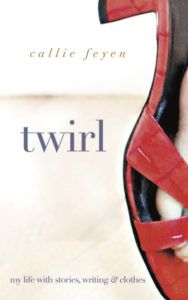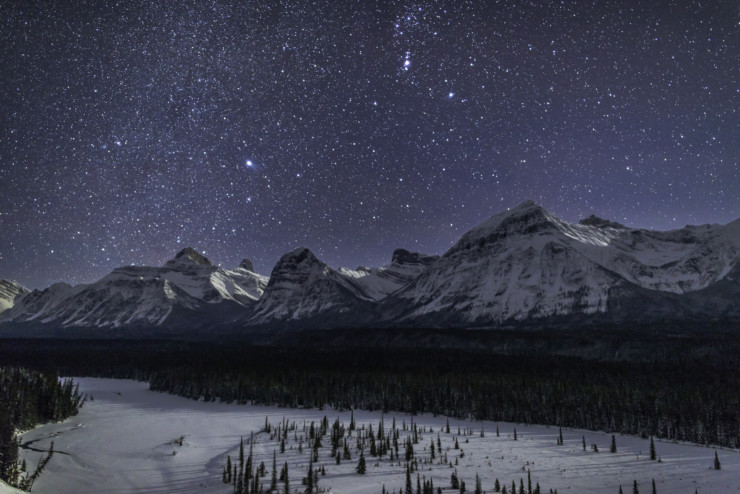I made no secrets regarding my fear for teaching Romeo and Juliet. How afraid was I? Let me count the ways.
You’ve got your inappropriate language aimed towards females. You’ve got your teenage sneaking around. You’ve got one giant Mercutio. A Friar who means well, but you really need to be skeptical of anyone who suggests taking poison that makes it look like you’re dead in order to get out of marriage. I haven’t even gotten to the double suicide part. Basically, everything that could go wrong in this play does.
“What was Shakespeare thinking?” I believe were my exact words as I sat at my desk in my classroom one afternoon, waving the play above my head.
In my lazier, poor moments of planning, I was banking on the hope that my students wouldn’t understand the bard anyway, or that the school year would end before we could wonder wherefore art thou Romeo.
My fear stuck with me and succeeded to prevent me from any deep planning until I read Rainbow Rowell’s Eleanor and Park. It was her opening scene, the one that was so vulgar I didn’t think I could read the rest of the book, and the one that paralleled the opening scene of Romeo and Juliet, that changed things for me. Yes, both authors begin their story with nasty language and behavior, but not only is that a component of many teenagers’ lives, but both stories show this is only one facet of being a teenager. What happens in both scenes is crass, yes, but if we see can stay in the story, we might see more than what’s disgusting, or, as I used to say when I was that age, “sick and wrong.” We might even see that this messy behavior and language is useful or even brave.
Realizing this, I fell in love with Romeo and Juliet, but also Mercutio and Tybalt. Suddenly, they were kids in my class, and it became urgently important to me to teach their story. Not as a warning, but rather as a layered, textured, complicated, and glorious life that was lived and that mattered.
I began reading the entire play this way — what at first seemed bad, I’d stop to wonder if there was anything more there. What could we celebrate? What could we be curious about? What beauty could be dug up and revealed?
I found this exercise helpful in working with Shakespeare’s use of night. Usually, the dark symbolizes evil, the lost, and people like Saruman and Voldemort, but in Romeo and Juliet, the night is a time of delicious mystery, excitement, and beginnings. Romeo and Juliet meet at night, they declare their love and vow to marry at night, and in a scene that will forever make me blush, Juliet begs for night to arrive so that she can consummate her marriage to Romeo.
In Romeo and Juliet, night is a time of opportunity, new ways for thinking and seeing. It is a place where imagination can run wild.
It’s not that I wanted to endorse what went on in the play, but I did think it was important (and fun) for my students to experience night in all its glory and get a little swept away in darkness. Where better to do that than in the classroom?
There will always be something to be afraid of in those dark hours. I wonder now if the greatest lesson I could’ve taught my students is to look at that fear with curiosity and love.
Try It
This week’s prompt comes straight from the book Shakespeare Set Free. On a piece of paper, write the word “night” and create a web of words, memories, and perhaps even sounds that you associate with this time of day. Then using those words, construct a poem that shows night in its mysterious glory. Try to make a picture with words for the reader.
Photo by Fresh Waffles, Creative Commons via Flickr. Post by Callie Feyen, author of Twirl: my life with stories, writing & clothes and The Teacher Diaries: Romeo and Juliet.
A Writer’s Dream Book

—Sarah Smith, Executive Editor Prevention magazine; former Executive Editor Redbook magazine
- Poetry Prompt: Courage to Follow - July 24, 2023
- Poetry Prompt: Being a Pilgrim and a Martha Stewart Homemaker - July 10, 2023
- Poetry Prompt: Monarch Butterfly’s Wildflower - June 19, 2023

Richard Maxson says
Night Wind
I looked for you in the wind; I thought I heard your breath
against my ear, rising and falling. I thought I felt your
fingers in my hair, pushing it back. And like opened doors,
I saw the leaves go silver as they turned, and beyond,
each one revealed a universe of midnight starry skies,
appearing and subsiding at your touch. Was it the wind or more
at work? I looked for you behind each one. Was it you or
my heart’s desire to see the stars as your bright eyes.
I reached for you in the air, but the warmth was the night,
it slipped from my arms without a trace, and I turned
to follow you, thinking I saw your face, but it was moonlight.
I listened everywhere and every sound I ever learned
I heard, and felt again your breath—I thought I heard you sigh.
I looked for you in the wind. Was it you I felt pass by?
Samip Adhikari says
So beautiful!!!